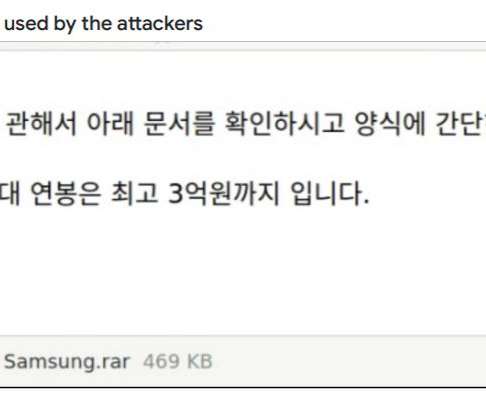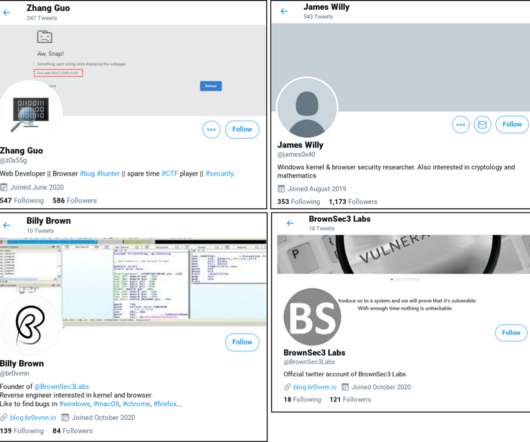North Korea-linked Zinc group posed as Samsung recruiters to target security firms
Security Affairs
NOVEMBER 28, 2021
North Korea-linked threat actors posed as Samsung recruiters in a spear-phishing campaign aimed at employees at South Korean security firms. North Korea-linked APT group posed as Samsung recruiters is a spear-phishing campaign that targeted South Korean security companies that sell anti-malware solutions, Google TAG researchers reported.












Let's personalize your content